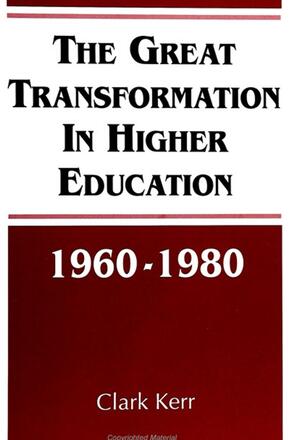
The Great Transformation in Higher Education, 1960-1980
Alternative formats available from:
Description
Clark Kerr, former President of the University of California and a leader in higher education policymaking, offers his views of the turbulent decades when colleges and universities scrambled to provide faculty and facilities for the burgeoning student population, only to be faced later with economic depression and subsequent conservatism. From his unique vantage point, Kerr offers insights into the role of higher education—its performance under pressure, its changing climate, its efforts to serve the multiplicity of demands made upon it, and its success or failure in meeting those demands.
Clark Kerr is President Emeritus of the University of California and former Chancellor and Professor Emeritus of Economics and Industrial Relations at Berkeley. He chaired and directed the Carnegie Commission on Higher Education as well as the National Commission on Strengthening Presidential Leadership under the auspices of the Association of Governing Boards of Universities and Colleges. Dr. Kerr, author of The Uses of the University, currently co-chairs a Task Force on State Policy and Independent Higher Education for the Education Commission of the States.
Reviews
"This is a first-rate source of historical information from one who was personally involved in most of the issues. Clark Kerr pulls together the many currents that were running through the community of higher education in these post-war years to clarify the relevance and importance of these institutions to the ongoing of American society. He shows the enormous value to this country and to the free world of the great American universities, and he underlines the necessity for maintaining and enhancing these institutions to assure America's place as a leader of thought and social action in the free world. " — William Friday, President Emeritus, The University of North Carolina